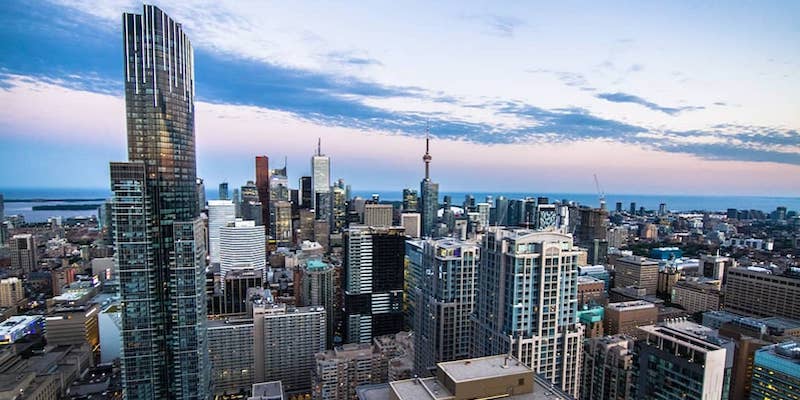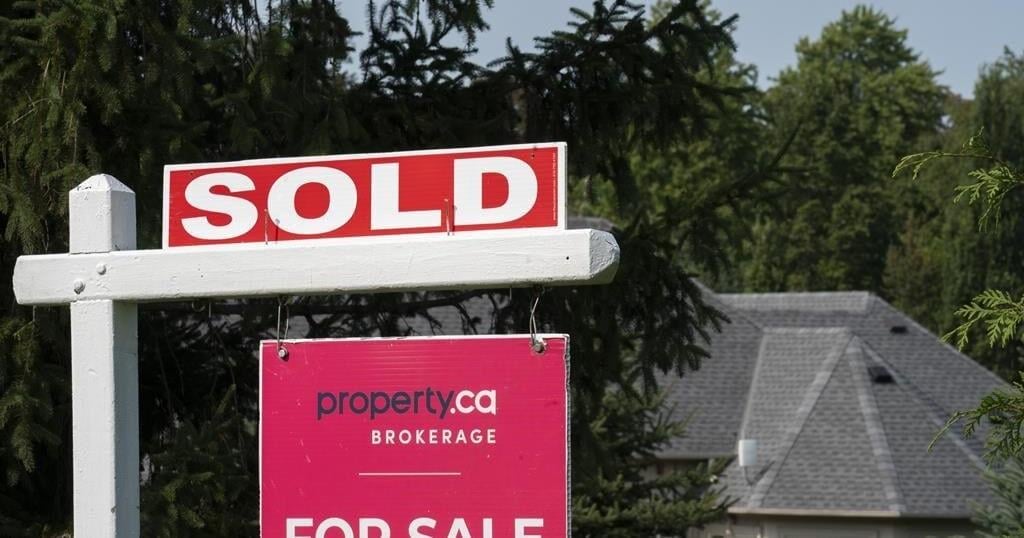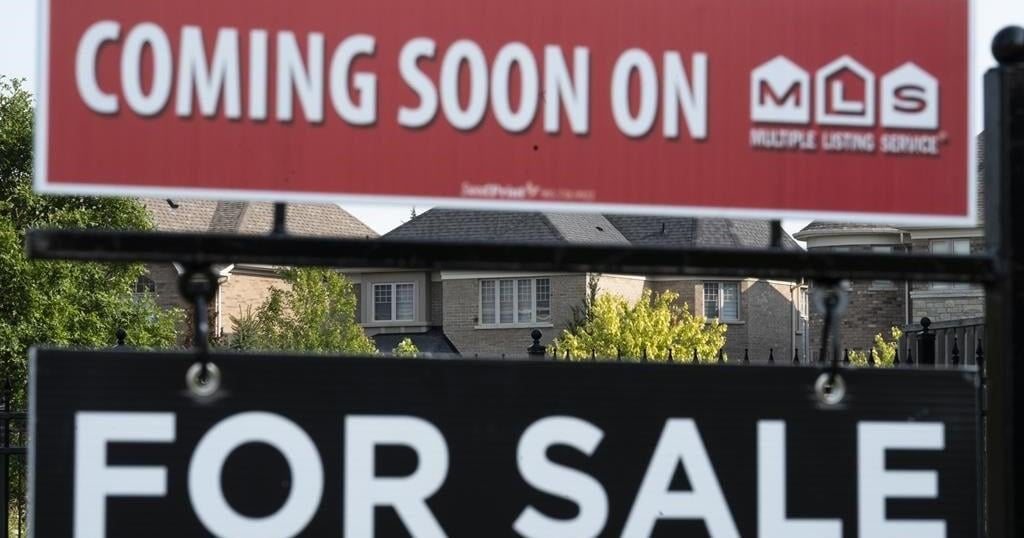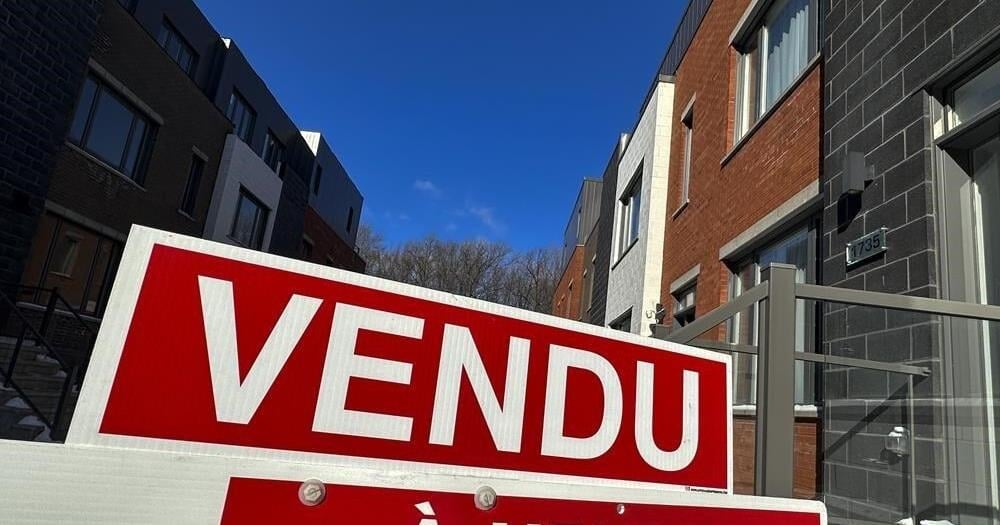With federal, provincial, and local governments all hesitating to deliver an end date for when current measures could be lifted, it’s still hard to imagine what life post-COVID-19 will look like.
The number of possible outcomes depend on how each level of government (and subsequently society) continue to respond to the crisis and its economic impact. Hopefully, not only Canadians but people everywhere, use the pandemic to rebuild and create a better world for everyone. Or, we could wake up to something much worse.
From a real estate standpoint, could we see the market crash? Some experts say that’s unlikely, but the rising unemployment rate, which included the loss of 1 million jobs in March and many more Canadians fearing they’ll be out of work in April, combined with the slowing economy are cause for serious concern.
READ: Average Toronto Home Price Falls Nearly 4% in First Half of April: TRREB
Every industry has already taken a hit, including real estate, with sales, home prices, and new listings down across most of the country. But as physical distancing measures are lifted, the pent-up demand should translate to a significant recovery in home sales and prices, with some analysts saying this recovery phase could likely occur later in the fall.
Which raises the question, what will the real estate industry look like in the post-COVID-19 era, particularly here in Toronto?
Brynn Lackie at Chestnut Park Real Estate Ltd. says, like a lot of other industries, this crisis is forcing those in the real estate space to reconsider the way they do things and how they can better utilize the tools they already have at their disposal. “Creativity and innovation will be the natural outcome of all of this,” says Lackie.
Some signs of creativity are already in place, with buyers, sellers and agents turning toward virtual and 3D-home tours to get eyes on listings, as physical distancing measures and the cancellations of open houses remain in place.
“I think that now more than ever, offering a robust digital experience to market a listing to people safely tucked-in at home will be critical. Not to mention the fact that there are amazing tools available that most agents (myself included until recently) haven’t even begun to explore, let alone utilize – everything from virtual staging to cinema-grade HD interactive virtual tours,” Lackie said.
But as lockdown measures soften in the weeks and months ahead, Lackie says that until there’s a vaccine available or the virus disappears, people will continue to feel vulnerable.
“Let’s meet them where they are. I honestly can’t see how we revert back to ‘business as usual’ anytime soon, so as an industry we might as well take this moment as an opportunity to innovate and adapt.”
READ: COVID-19 Causes 80% Drop in Number of Condo Transactions in Toronto
Lorne Tanz, a broker with Slavens & Associates Real Estate Inc. echos a similar tune, saying that in the post-COVID-19 world he believes virtual tours will be an integral way for sellers to showcase their properties, even once social distancing restrictions are relaxed.
“Previously, buyers would likely see between 10-20 carefully curated photos of a property before deciding whether or not to view it in person. Because of the current limitations of physically showing a home, we’re now seeing a major increase in 3D tours. Buyers can virtually ‘walk through’ a property and get a much better perspective on size, flow, and sight-lines,” explained Tanz.
“My clients have found these tours extremely helpful when looking at properties and I anticipate that more agents will continue to use this technology.”
Even once the ‘curve is flattened’ in Toronto, the need for proper guidelines to be in place to ensure there isn’t another spike of cases in the months to come will remain. And without these guidelines, Tanz says he believes open houses will be “nonexistent.”
“An innovative way to highlight a property is through live-streaming open houses. Potential buyers can log onto a stream via Facebook, Instagram, ZOOM, etc., and get an in-depth tour with a listing agent while interacting and asking important questions about the home. This is definitely a practice that I will continue to use,” said Tanz.
“While nothing can truly replace seeing a property in person, the real estate industry will continue to go virtual and adopt new ways to market and view properties.”
READ: COVID-19 Could Have Big Impact on First-Time Homebuyers
Shaun Denis, CEO of Umber Realty Inc., says he sees the pandemic shifting the industry to be more innovative, with virtual reality, electronic signatures, zoom calls, and virtual open houses acting as just a few of the key pieces of technology already serving as the forefront of this change.
Denis says the pandemic will not just cause the industry to change for agents, but also for brokerages. “At Umber, we have fully stopped the use of cheques and all exchanges of money are now by electronic means. This is something we have been pushing to change for years, but it is now forcing other brokerages into the change.”
“The real estate associations and boards at all levels across Canada have adapted or changed in some way as well,” said Denis. For example, now that there has been a full stop to open houses, Denis says CREA and local boards have now implemented a data field on the MLS that allows consumers to tune in to Live Open Houses conducted by the agent.
Moving forward, Denis thinks the real estate industry will be divided into ‘two camps.’ “In the first camp, you will have agents that will go right back to the way they traditionally did business. The second group of agents will notice the benefits of utilizing technology and implement it into their real estate businesses.”
READ: Canadian Home Prices Could Drop as Much as 5% Due to Coronavirus: Report
While the broad consensus sees the real estate industry shifting to be more technology-driven, Matthew Cracower, a broker for Forest Hill Real Estate Inc., says he sees how showings and open houses are run could change.
“I can see this being limited to two people at a time but if groups are taking the right precautions to tour the home in turns, I see suggested procedures put in place,” says Cracower. “But I don’t foresee any strict bylaws or this procedure being enforced unless there are many who are ignoring these suggested procedures.”
While the end of COVID-19 might not necessarily be in sight, if history has taught us anything, it’s that Toronto’s real estate industry has recovered from dark economic days before.
And it likely will again.


























